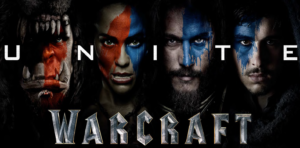 I watched Warcraft this past weekend. Throughout the first half of the film, I was confused. The story wasn’t boring, but it was somehow unsatisfying. The characters were well-defined, but were not engaging. The dialogue wasn’t bad, but it kept falling flat.
I watched Warcraft this past weekend. Throughout the first half of the film, I was confused. The story wasn’t boring, but it was somehow unsatisfying. The characters were well-defined, but were not engaging. The dialogue wasn’t bad, but it kept falling flat.
What the hell was going on?
Then, I remembered something I had been thinking about for a while. Over the past quarter century, there has been a convergence between television and film narrative modes.
The old modes were insular. At the end of each TV episode, there was a reset to the status quo ante that enabled the next episode to maintain the program’s formula. If there was any development at all, it was often driven by necessity (an actor quit the show), timed by season rather than episode (as in when Blake dies at the end of season 3 of M*A*S*H), and of minimal impact.
In the other world, films were generally considered holistic, stand-alone pieces of art, each a thing unto itself. If The Big Sleep had been first filmed in 2000, everyone could reasonably expect the rest of Chandler’s Marlowe books to follow in adaptation. In the classic mode of film-making, it was a one-off.
The Star Wars trilogy heralded the end of the insular mode in film. It wasn’t a film. It was a franchise. And we saw the same thing developing in television starting with shows like The Wire and finding its full blossom in Breaking Bad. Long, cinematic story arcs were in; the weekly reset was out.
The insular mode is dead. Now, every film is an opportunity for a series, and every TV series is a film told long-form.
Which brings me back to Warcraft. Halfway through the film, it dawned on me: this is a season of television compressed into a feature film. The story was unsatisfying not because the plot shifts were poorly executed, but because they were rushed. The characters did not fail to be engaging because they weren’t well-defined, but because we didn’t have enough time to get to know them.
And the dialogue wasn’t falling flat because it was poorly written, but because it wasn’t delivered with the history of interpersonal dynamic we’d see in a television series. Ever notice how jokes are funnier when your best friend tells them (or a comedian you’re familiar with) than when a stranger tells them? The same words have different impact based on our history with the person saying them.
Consider Game of Thrones, which is known for its dialogue. A snappy phrase like “I drink and I know things” sounds awesome in season 6 Tyrion’s mouth. Imagine if that were the first thing he said in season 1. Blegh.
Basically, Warcraft plays like a synopsis for an awesome television season that has been misused as a feature film screenplay. Once I recognized this, I was able to (barely) enjoy the rest of the film, imagining each sequence expanded into an episode or two. The loss of Lothar’s son, King Llane’s sacrifice, Garona’s apparent shift in allegiance… all of these would have been powerful show-enders in a ten to twelve episode TV season. Instead, they came as a pitter-patter of twists, never giving you time to adjust to one before the next one happened. The actors did an admirable job of trying to fill in the empty spaces, but human beings (even those playing wizards and orcs) can only do so much.
All of this goes to show that a cognitive trait I like to call strategic thinking (it probably has a strong correlation to g factor intelligence, and is thus evolutionarily novel) is rare enough to show its absence in productions like Warcraft. I understand there may have been logistical reasons that the story concept couldn’t be adapted for television—HBO was busy, AMC was financially committed—but in that case the synopsis should have been pulled back to the first sequence or so for the screenplay, with hopes that the film would spawn sequels that had conveniently already been worked out.
Wouldn’t that have been beautiful?
